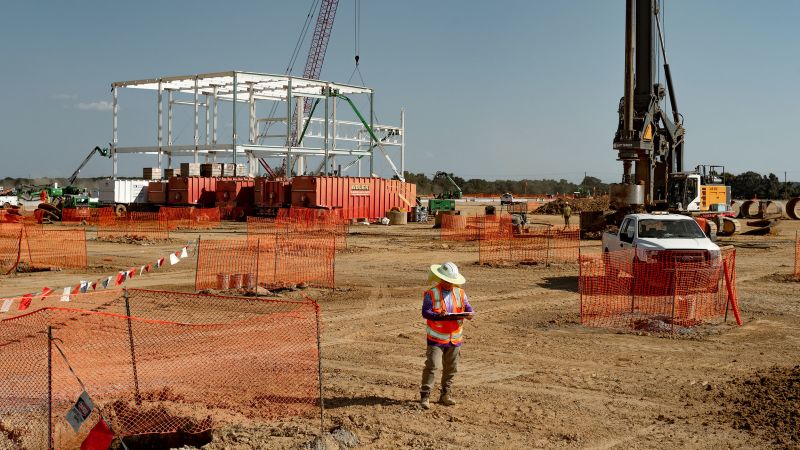Trump Voters Face Job Losses: GOP's Plan – A Deeper Dive
The narrative surrounding job losses and the Republican party's economic policies, particularly under the Trump administration and its aftermath, is complex. While President Trump's supporters often pointed to economic gains during his tenure, a deeper examination reveals a more nuanced picture, particularly regarding the impact on his core voting base. This article delves into the challenges faced by Trump voters amidst shifting economic landscapes and analyzes the GOP's proposed solutions, or lack thereof.
The Promises and the Realities: Economic Impacts on Trump Voters
During the 2016 campaign, Donald Trump promised to "Make America Great Again," a slogan heavily tied to economic prosperity and job creation. His policies, including deregulation and tax cuts, aimed to stimulate the economy and benefit American workers. While the economy did experience a period of growth under his presidency, the benefits weren't evenly distributed.
Key economic indicators during the Trump administration presented a mixed bag:
- GDP growth: While GDP growth was positive, it wasn't significantly higher than growth rates under previous administrations.
- Job creation: Job creation was also positive, but many of the newly created jobs were in low-wage sectors.
- Manufacturing jobs: A key promise to bring back manufacturing jobs to the US saw limited success. Automation and global competition continue to present major challenges.
- Wage growth: While wages increased, they often failed to keep pace with the rising cost of living, especially for lower-income workers – a significant portion of Trump's base.
Who Feels the Pinch?
The impact of economic shifts, including automation and global trade, disproportionately affects specific segments of the population. Trump voters, often residing in rural and industrial areas, were particularly vulnerable to these changes. The decline of manufacturing and coal industries, for instance, directly impacted communities that heavily supported Trump. These job losses often translated to:
- Increased poverty rates: In areas with significant job losses, poverty rates increased, undermining the economic security of many Trump voters.
- Loss of community infrastructure: The decline in industry often leads to a decrease in tax revenue, impacting local services and infrastructure.
- Increased opioid crisis: Economic hardship often contributes to social problems, including the opioid crisis, which disproportionately affects these communities.
The GOP's Response: A Lack of Comprehensive Solutions?
The Republican party's response to the economic challenges faced by its core voters has been criticized as insufficient. While tax cuts were presented as a solution to boost economic activity, critics argue that these benefits primarily favored corporations and the wealthy, failing to address the needs of working-class families.
The GOP's approach often focuses on:
- Deregulation: While proponents argue it stimulates economic growth, critics point to potential negative environmental and social consequences.
- Tax cuts: These cuts, while potentially boosting short-term economic growth, may exacerbate income inequality and the national debt in the long run.
- Limited investments in infrastructure: A lack of significant investments in infrastructure development restricts job creation potential in key sectors.
The absence of a cohesive strategy to address the specific economic concerns of Trump voters raises questions about the party's commitment to its base. The focus on broader economic principles, without adequately addressing the specific challenges faced by these communities, could alienate a significant portion of their support.
Moving Forward: A Need for Comprehensive Solutions
To address the economic challenges faced by Trump voters, a more comprehensive approach is needed. This requires a shift from focusing solely on broad economic indicators to addressing the specific needs of communities hit hard by job losses. This could involve:
- Investing in retraining and education programs: Preparing workers for jobs in emerging industries is crucial.
- Supporting small businesses and local economies: Creating more diverse and resilient local economies will cushion the blow of future economic shocks.
- Addressing the opioid crisis: Tackling this complex issue requires comprehensive strategies focusing on prevention, treatment, and support services.
- Investing in infrastructure: Modernizing infrastructure creates jobs and improves the quality of life in affected communities.
Ultimately, the economic well-being of Trump voters is inextricably linked to the future of the Republican party. A failure to address their concerns effectively could have significant long-term political consequences. The party needs to move beyond broad economic pronouncements and develop targeted strategies that directly address the challenges faced by these communities, fostering a more equitable and inclusive economic system.
